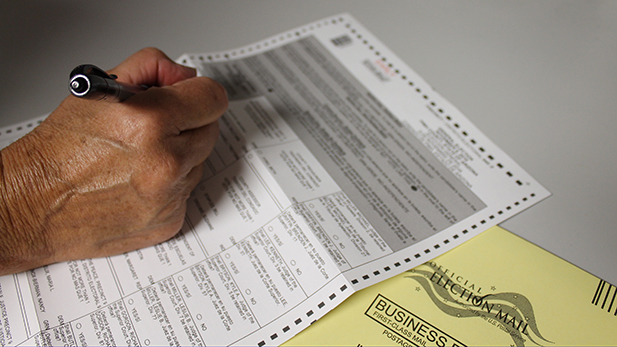
PHOENIX — Another legal challenge has been filed to a 2016 law that bars groups in Arizona from collecting early mail-in ballots from voters and delivering them as part of get-out-the-vote efforts.
The lawsuit filed Tuesday seeks to bar officials from enforcing the law and alleges the statute is unconstitutional because it's trumped by federal law. It argues the state is trying to regulate the delivery of mail-in ballots, even though federal law lets private citizens mail items that belong to others if they do so without getting paid.
Nearly two months ago, a federal judge rejected another attempt to overturn the Arizona law, ruling that the people who challenged the law didn't prove that the election practices unjustifiably burden voting or were enacted to suppress minority turnout.
The law bans anyone but caregivers or family members from delivering a completed early ballot to a polling place. A violation is a felony punishable by six to 18 months in jail.
Both parties have used ballot collection to boost turnout during elections by going door to door and asking voters if they have completed their mail-in ballots. Voters who have not are urged to do so, and the volunteers offer to take the ballots to election offices. Democrats, however, use it more effectively.
Democratic groups argue that the law, which was passed by the Republican-controlled Legislature, disproportionately affects minority voters. Gov. Doug Ducey has called it a common-sense law to protect election integrity.
The lawsuit was filed on behalf of Rivko Knox, a Democratic precinct committee member who also participates in door-to-door canvassing efforts for the League of Women Voters of Arizona. Knox wants to take part in ballot collection efforts, as she has in the past, but she fears she will be prosecuted if she delivers an early ballot for another person, according to the lawsuit.
The office of Arizona Attorney General Mark Brnovich, the sole defendant in the lawsuit, didn't immediately respond to requests Wednesday to comment on the lawsuit.

By submitting your comments, you hereby give AZPM the right to post your comments and potentially use them in any other form of media operated by this institution.